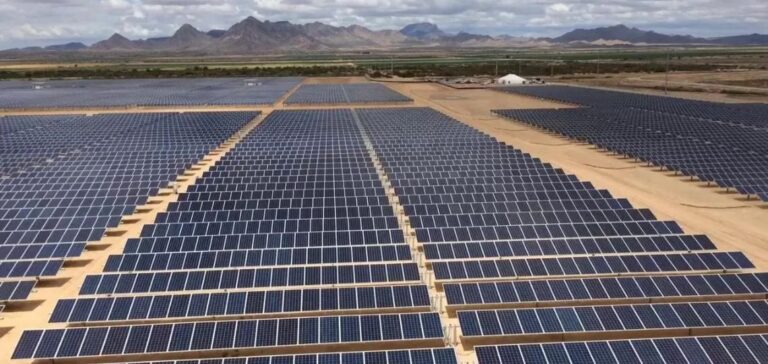Joe Biden’s administration is finalizing a plan to open 31 million acres of federal land to solar energy development in 11 western U.S. states.
The initiative aims to boost the energy sector by simplifying permitting procedures and reducing the time needed to build infrastructure.
The Bureau of Land Management (BLM) identifies these lands based on their solar potential and limited ecological risks, in order to minimize regulatory and environmental hurdles.
The selected lands are located mainly in Arizona, California, Nevada and Colorado, among others.
These areas offer favorable conditions for solar projects, such as strong sunlight and limited environmental impacts.
The administration is seeking to reduce the time it takes to obtain permits, thus facilitating the implementation of large-scale energy projects.
Reduce approval times and support industrial projects
The administration reports that the new measures have already reduced the median time required to finalize environmental assessments by six months.
This reduction goes hand in hand with the aim of increasing the number of projects approved and boosting the attractiveness of investment in renewable energies.
Compared with the previous administration, more projects have been authorized, reflecting a desire to accelerate the energy transition without compromising compliance standards.
At the same time, the Environmental Protection Agency (EPA) approved new emission reduction credits for businesses in Maricopa County, Arizona.
These credits, designed to encourage the adoption of less polluting vehicles, can be acquired by local industries to offset their emissions and meet federal air quality standards.
Impact on the renewable energy sector and regulation
These measures aim to create an environment more conducive to the expansion of renewable energies, while meeting environmental compliance requirements.
By focusing on high-potential land, the solar expansion plan seeks to limit conflicts of use and maximize the efficiency of new installations.
The administration’s approach involves greater coordination between the various federal agencies to streamline processes and limit delays.
Companies in the energy sector, faced with rapidly changing regulatory frameworks, must adapt to these new opportunities and challenges.
The federal initiative offers a favorable framework for investment, but also demands greater rigor in terms of compliance and integration of projects in line with new environmental standards.






















